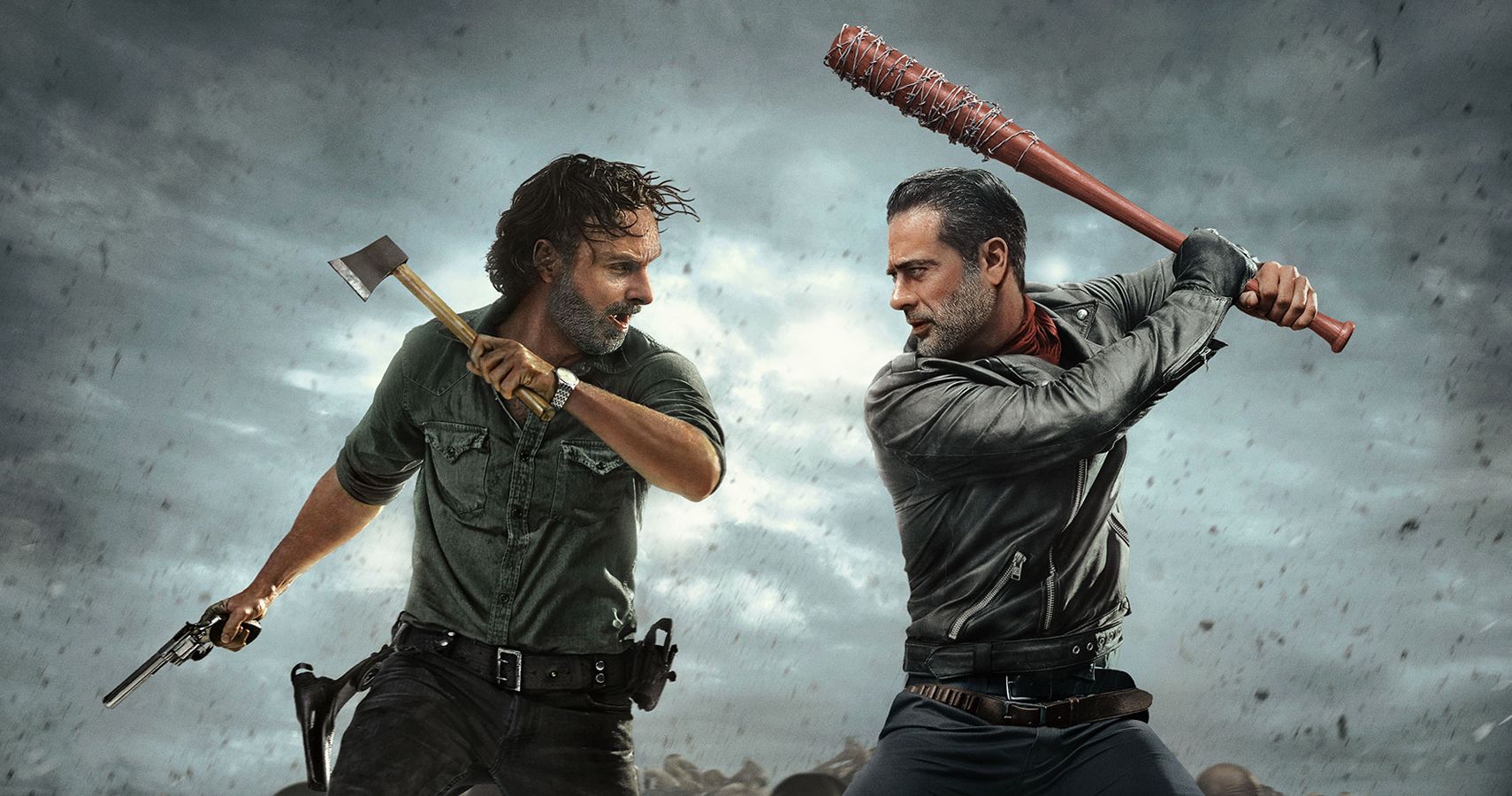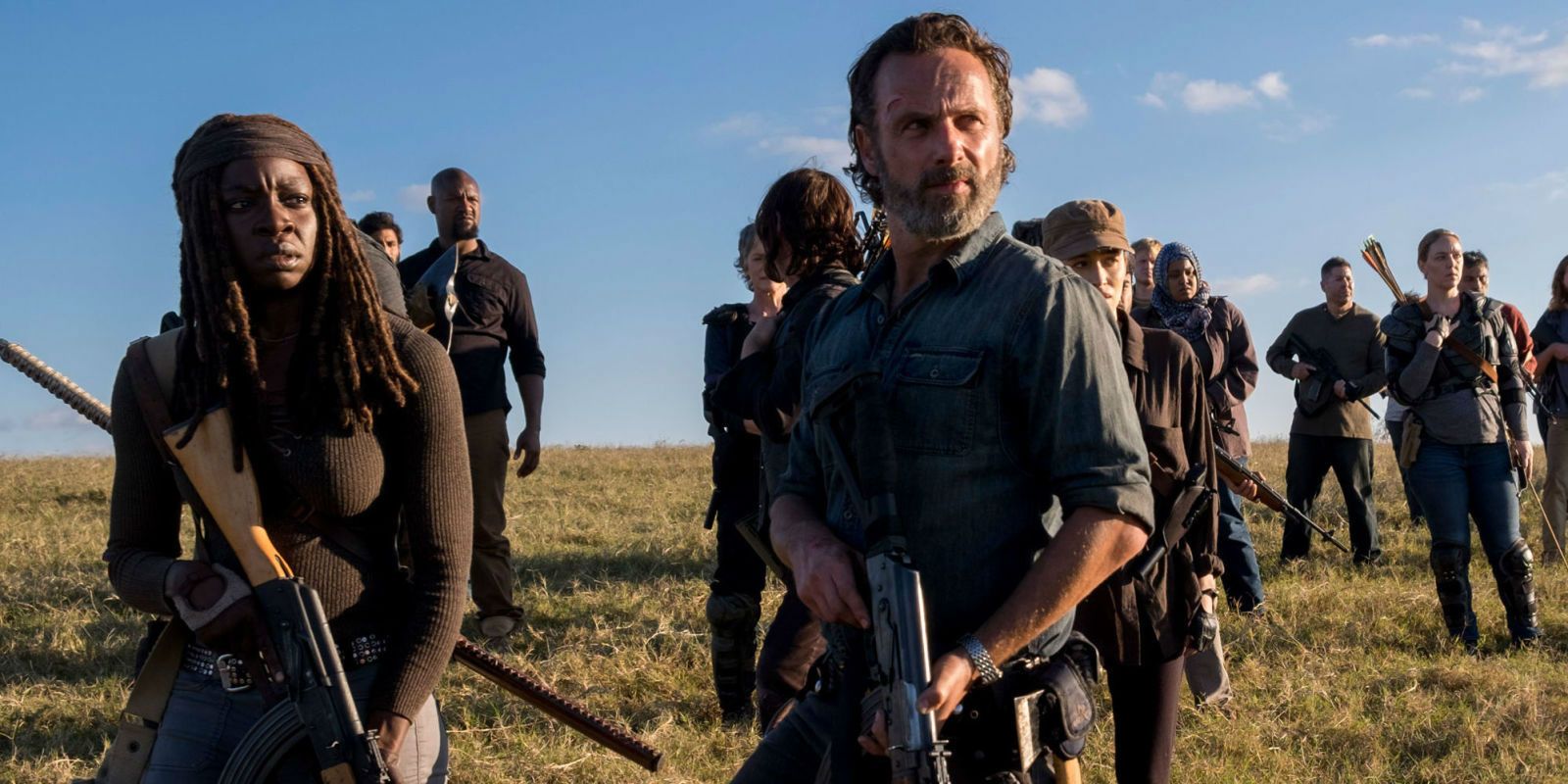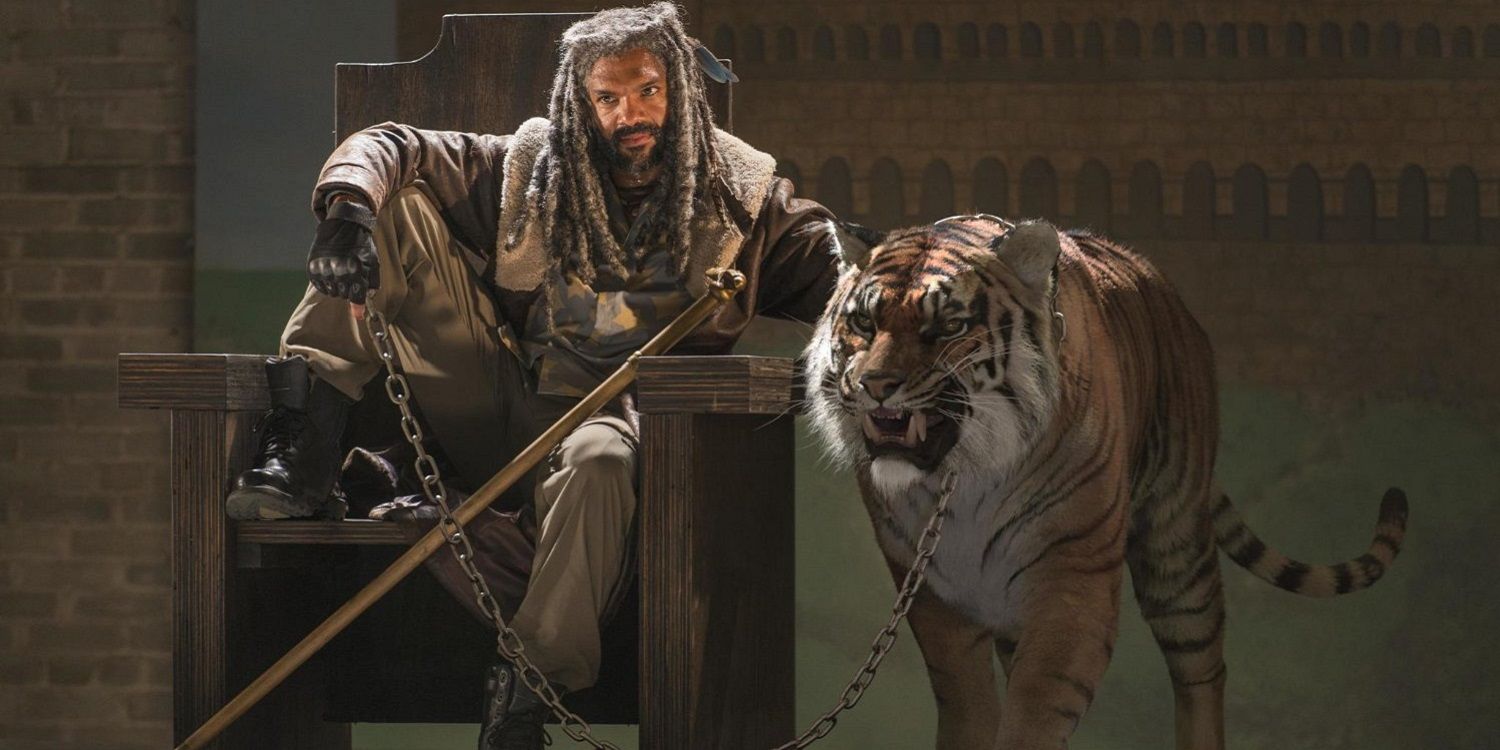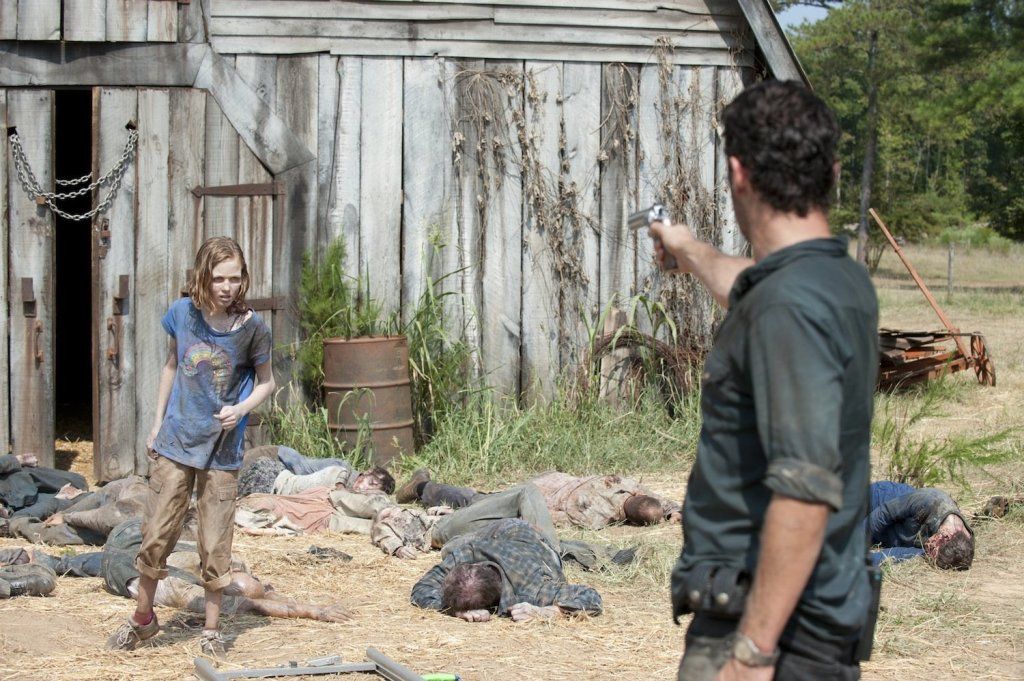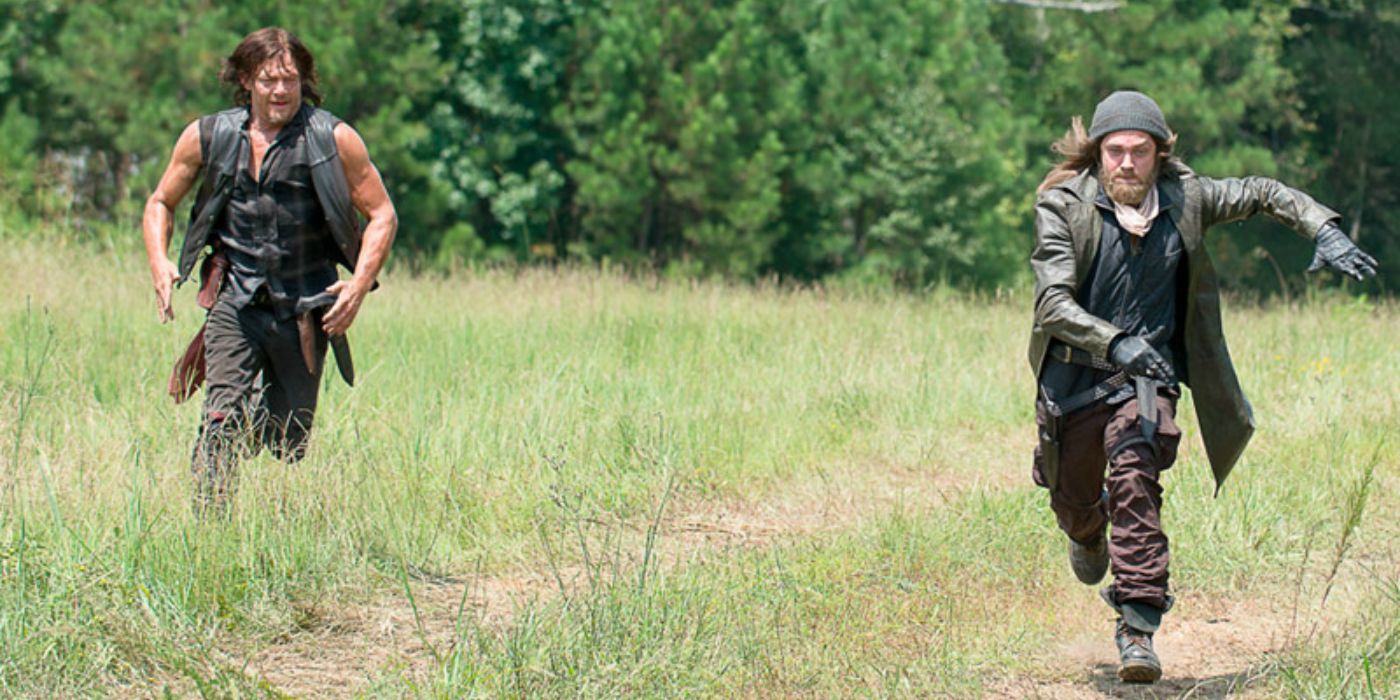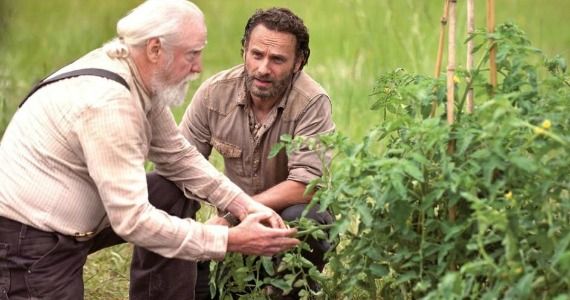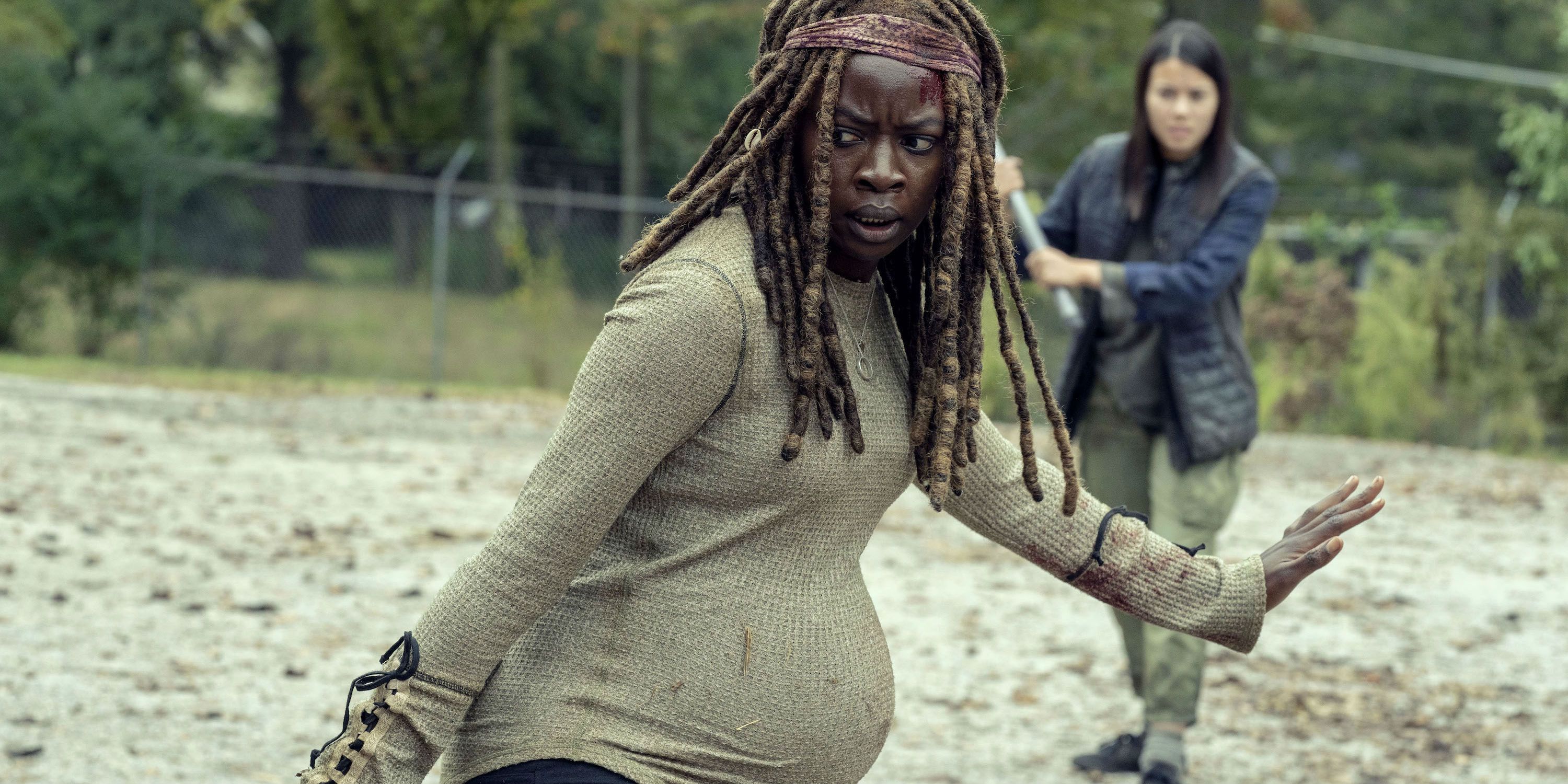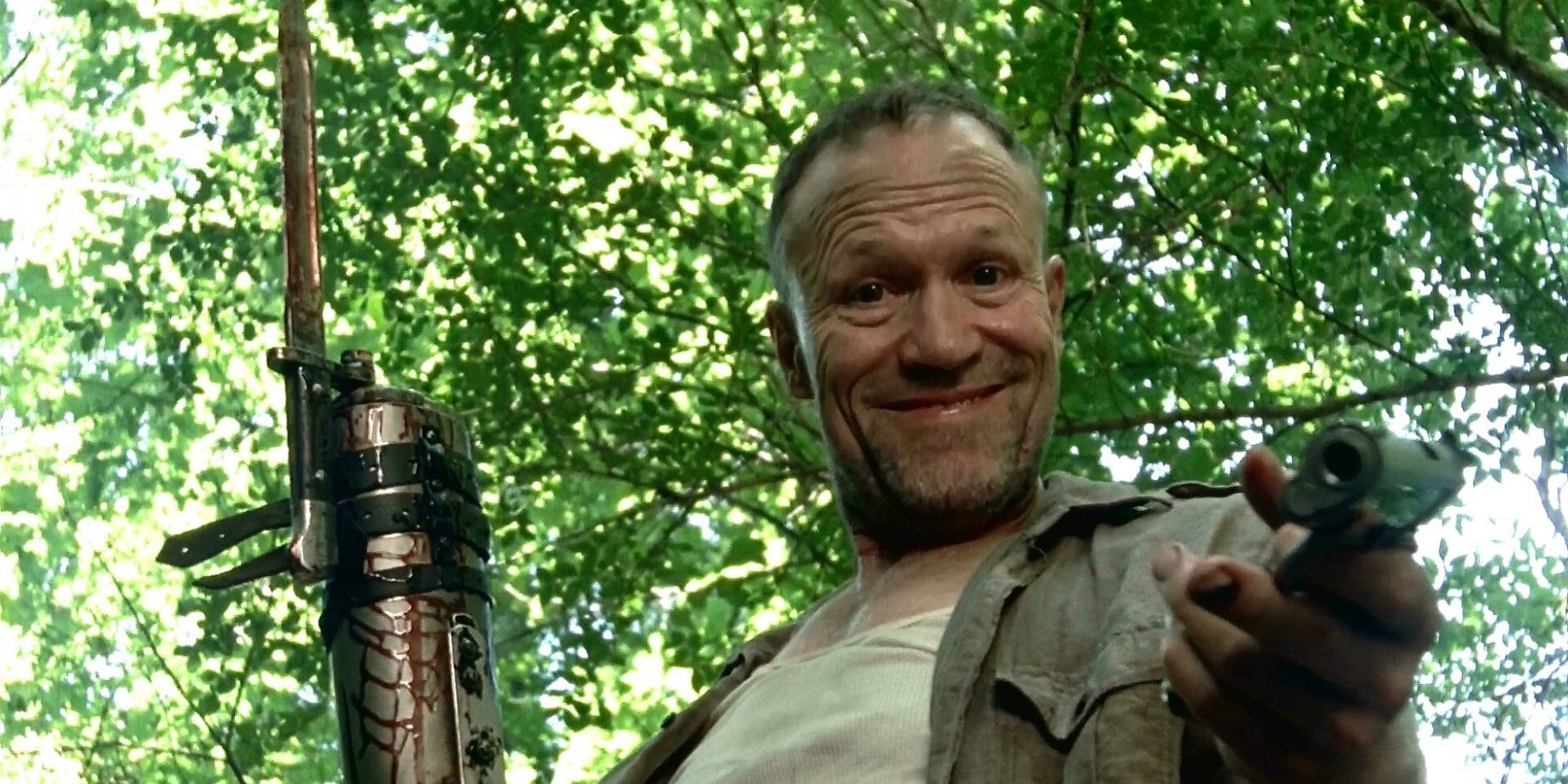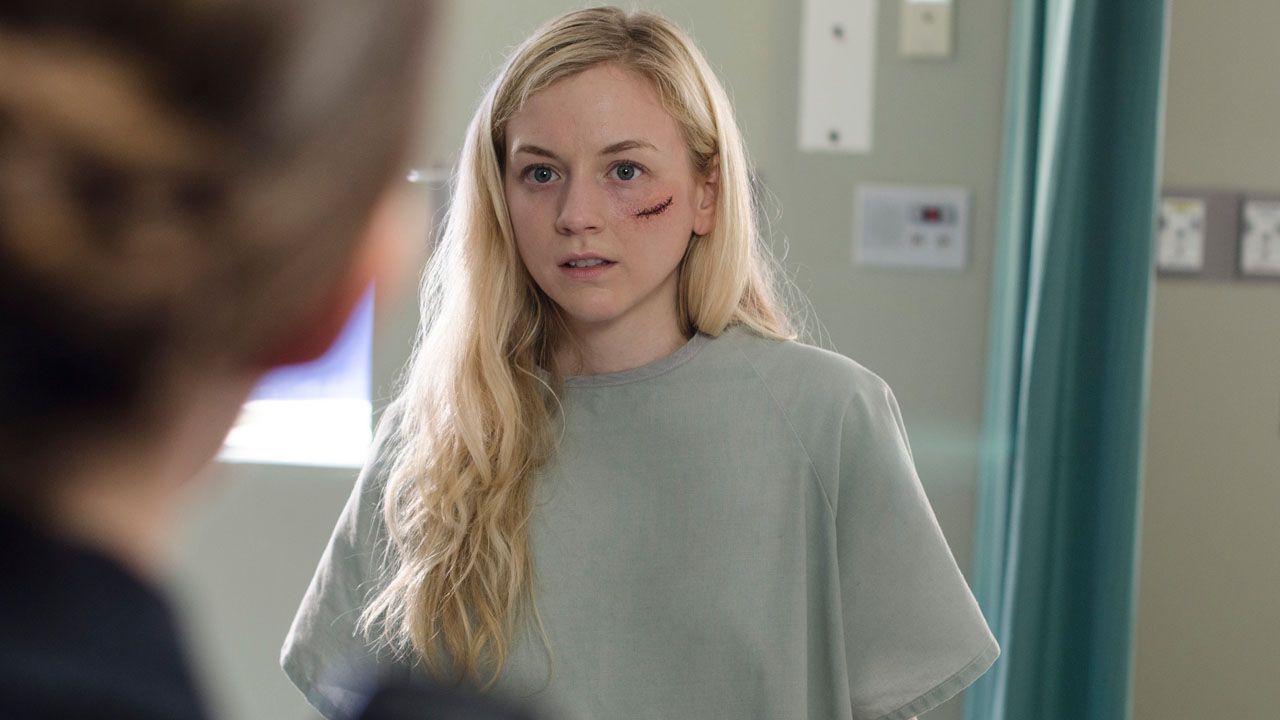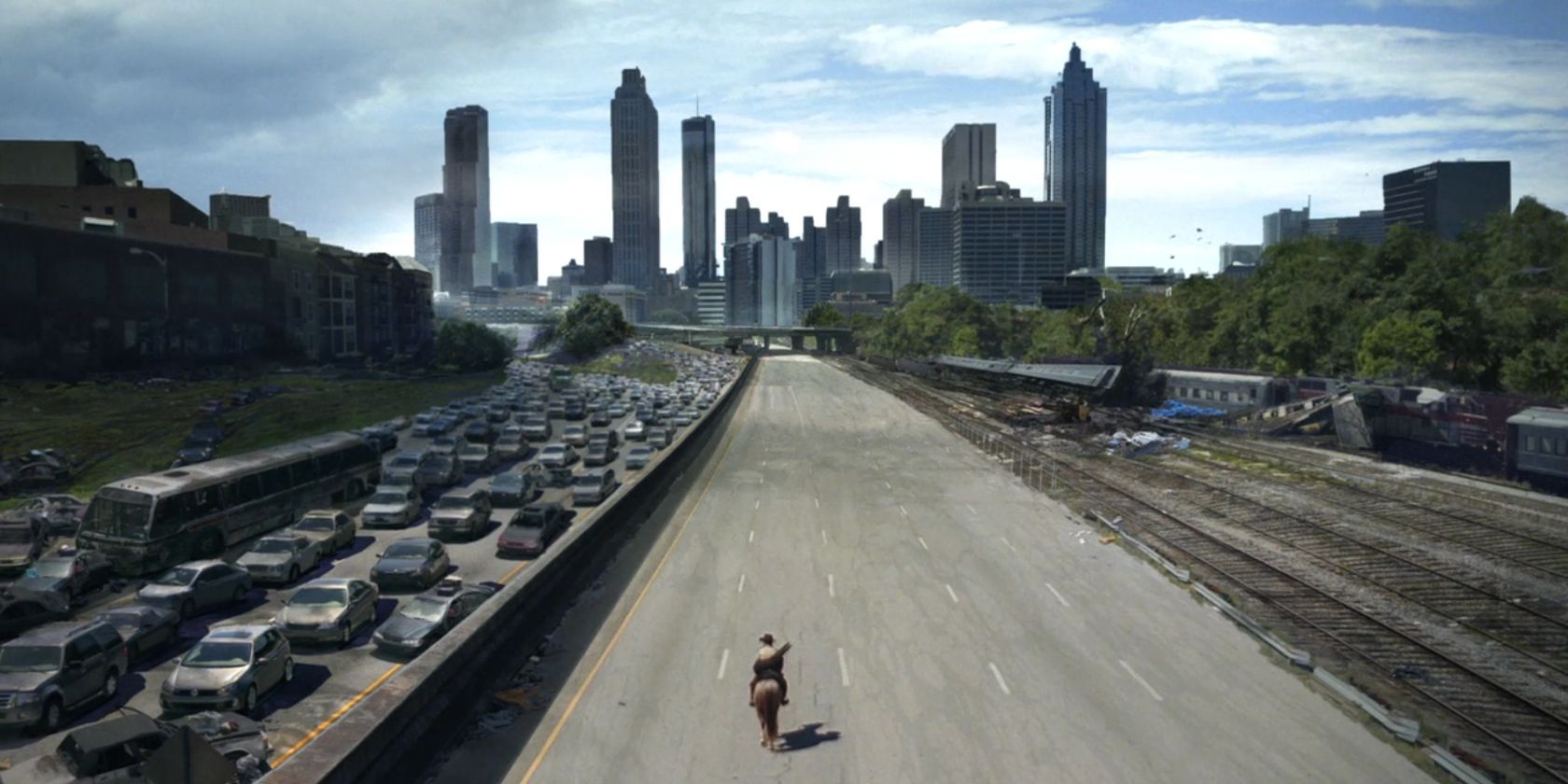While it's not quite the massive phenomenon it once was, The Walking Dead is still going strong as it heads into its tenth season. Adapted from Robert Kirkman's comic series, The Walking Dead has expanded beyond the main series and into a larger franchise, most notably with the spin-off series Fear The Walking Dead.
It all began with the story of Rick Grimes trying to find his family in a post-apocalyptic world ravaged by zombies--commonly referred to on the show as walkers. Over time the show has gone far beyond the initial premise, offering some of the most suspenseful, devastating, and even uplifting moments on television in the past decade.
The series has experienced plenty of highs and lows in its nine season run. Let's take a look at a ranking of the show's best seasons so far.
Season 8
Season 8 featured some strong moments like the scenes between Negan and Gabriel when they were trapped together, but it also featured some of the most questionable decisions in the entire series. The decision to take the life of Carl Grimes at this juncture in the series left many fans angered and disappointed. The pleasant surprise of bringing back Morales--a character whose whereabouts fans had speculated about since his departure in season 1--quickly turned into a point of frustration as Morales was swiftly terminated after being reintroduced.
To top it all off, the season ended with Rick slashing Negan's throat and then ordering for his life to be saved, a decision that made sense with Carl's last wishes, but still felt strange after all the promises Rick made about one day slaying Negan and avenging the demises of friends like Glenn and Abraham. Season 8 had its moments, but it was ultimately clouded by a number of questionable decisions.
Season 7
Season 7 introduced audiences to a variety of unique communities. In addition to learning much more about the Saviors and the Hilltop, fans were able to explore the Kingdom, Oceanside, and the Scavengers. The world of The Walking Dead felt larger than ever and fascinating new characters like King Ezekiel became central to the show.
Despite these positives, season 7 suffered from the very beginning as the overly brutal and grotesque demises of fan-favorites Glenn and Abraham in the premiere served to alienate and infuriate fans. While the story of each community and their struggles was intriguing, it took too long for all the pieces to come together. The moment where Alexandria, the Kingdom, and the Hilltop united against the Saviors in the finale was an uplifting and rewarding payoff, but it only came after what at times felt like disjointed storytelling.
Season 2
The moment where Carol's daughter Sophia emerges from the barn as a walker remains among The Walking Dead's most intense and emotional moments. Season 2 made that possible through careful buildup. It was also the season that introduced Maggie, Hershel, and Beth Greene, three characters who would go on to be enormously integral to the series.
Shane's descent into becoming a darker character was fun to see, but the drama between him, Rick, and Lori grew tiresome. The plot eventually started to feel stagnant on the farm as well. The world of The Walking Dead started to feel rather small and contained, and that's not something a show should be experiencing as early as the second season.
Season 6
Season 6 forever opened up the world of The Walking Dead. Rick and Daryl's first encounter with Jesus led them to the Hilltop, which led them to the Saviors, a chain of events that opened the doors between Alexandria and many other communities. The season also featured one of the show's calmer, yet strongest episodes with "Here's Not Here", a beautiful episode that provided tremendous insight into Morgan's complex journey.
Alexandria becoming completely swarmed with walkers and how the community banded together to defeat the massive herd is a standout moment for the series. Despite these positives, the introduction of Negan and the Saviors felt a bit clunky, and the contrived storyline with the Anderson family in Alexandria was difficult to watch.
Season 4
Instead of a psychopathic human or a massive zombie herd, season 4 began with an entirely different threat. Rick's group had to contend with a virus that quickly spread and infected other survivors. Hershel was given an opportunity to shine as he used his medical expertise and bravery to save the day. It was refreshing to see an older adult being the hero, using skills that are often underappreciated on The Walking Dead.
That storyline and Rick's attempt to lead a more pacifistic life was a promising way to start the season. However, the Governor's abrupt return and the devastation he caused at the prison forced the season in a new and less fruitful direction. With so many characters separated, the second half of the season meandered and at times felt too disconnected.
Season 9
Under the direction of new showrunner Angela Kang, season 9 breathed new life into The Walking Dead, once again making fans feel eager and excited for each new episode. It ultimately ended up feeling like two separate seasons--one being the first five episodes that culminated in the show's exit for Rick Grimes--the seconding being the episodes that followed after Rick's departure.
The show returned to the basics that made it so strong in the first place and made every episode count, never making anything feel like filler. Rick received an emotional and fitting sendoff and the threat of the Whisperers was introduced, an enemy unlike anything on the show before. Longtime characters like Daryl, Michonne, and Tara were given focus and compelling story arcs instead of being largely neglected as they'd been in recent seasons. The season finale felt a bit lackluster, but otherwise season 9 was an excellent return to form for the show.
Season 3
Back in season 3, the concept of Rick's group encountering a community under the leadership of a charming--but actually psychopathic--individual was new territory for the show. The Governor was the show's first major human antagonist from another community, and he did an excellent job setting the foundation for the other villains that would follow.
Season 3 was also where Carol started to truly shine and develop as one of the show's best characters. Daryl became better developed than ever as he was unexpectedly reunited with his brother Merle, now the Governor's right-hand man. Michonne solidified herself as one of the show's fiercest and most complex characters. Some questionable decisions were made with other characters like Andrea, but overall, season 3 featured quality character development.
Season 5
Though it was split into a few different arcs, season 5 featured some of the show's best storylines. It began with the epic destruction of Terminus, quickly fulfilling Rick's assertion at the end of season 4 that Terminus messed with the wrong group of people. It continued into the hospital storyline in Atlanta where Beth had a chance to show her bravery and resilience like never before, finally letting her be the leader of her own story.
The second half of the season brought Rick's group to Alexandria, forcing the characters to question the kind of people they'd become and who they could still be, and what the idea of civilization truly meant in a walker-infested world. The isolated world of Alexandria was a far cry from the brutal world outside, and it was fascinating to see the two worlds collide and how Rick's groups dealt with this new challenge.
Season 1
From the image of Rick riding into a devastated Atlanta on horseback, to Rick and Glenn walking through the city lathered in walker guts, season 1 laid the groundwork for the show that would become a massive phenomenon. Unlike the overcrowded character ensemble of later seasons, the pilot episode mostly focused on Rick, allowing audiences to become fully invested in him from the very beginning.
Season 1 was more straightforward in its storytelling approach than other seasons, but it achieved the most important feat of making fans care about the characters and their struggle to survive. The game-changing finale where Dr. Edwin Jenner whispered into Rick's ear that "We're all infected" set the tone for the entire series as it would never be about a cure, but about the struggle for human survival and civilization.
What is your favorite season of The Walking Dead? Let us know in the comments!

